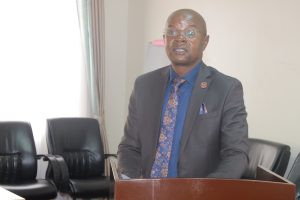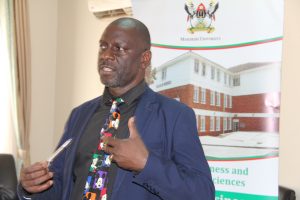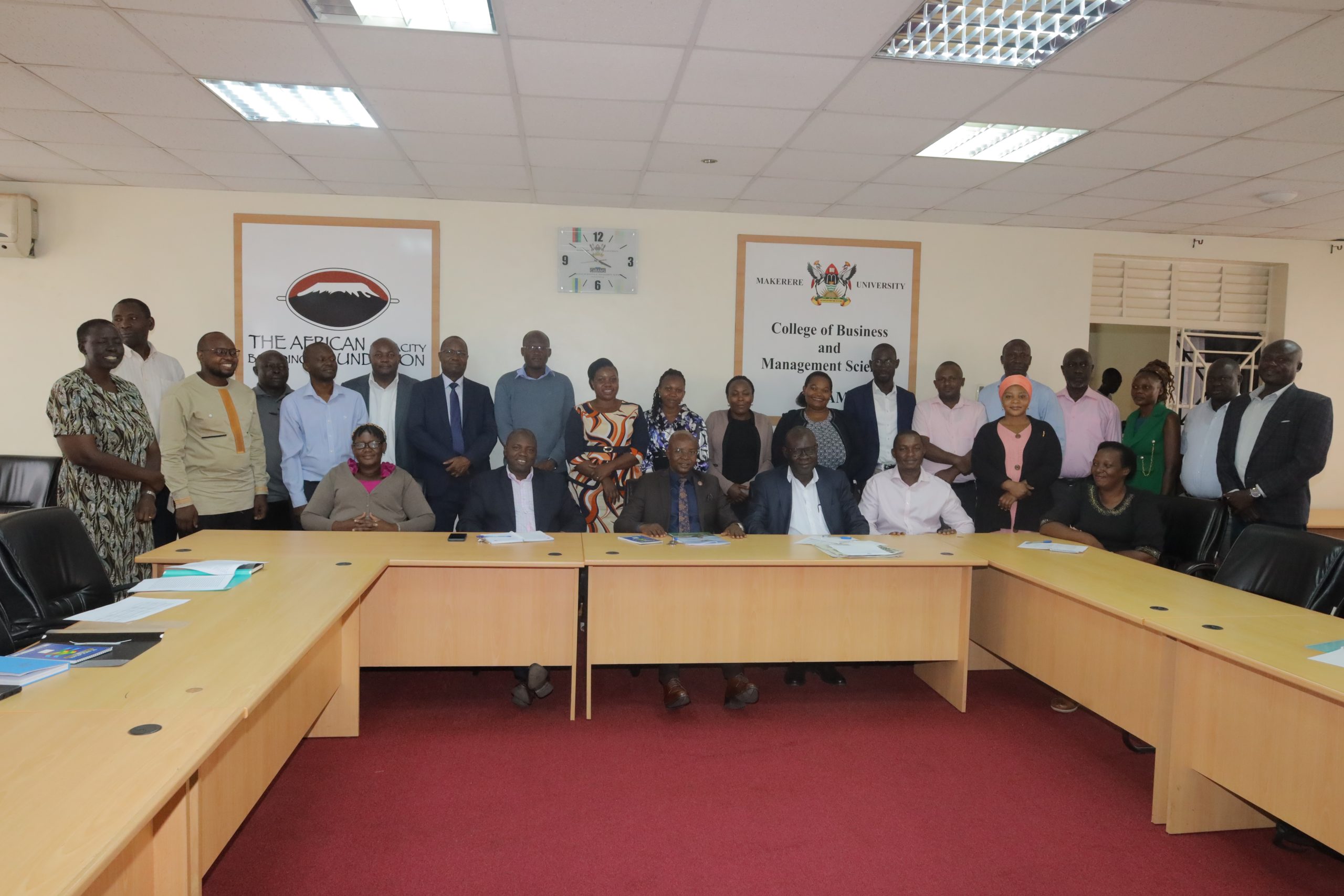The School of Business, College of Business and Management Sciences, has concluded thd 3rd Annual Doctoral Colloquium Programme, 2024, which brought together 34 PhD students, including 11 third-year and 23 first- and second-year students, for a four-day engagement held from Monday October 14 to October 17, 2024.
Organized under the leadership of Prof. Godfrey Akileng, Dean of the School of Business, and Dr. Kasimu Sendawula, the colloquium focused on the theme, “Research Grounding, Framing, Problematizing, and Making a Contribution for a Seamless PhD Experience.” The event aimed to educate participants on research proposals and thesis guidelines, enhance scholarly writing and presentation skills, and foster networking between young and senior researchers.
The colloquium achieved its objectives through sessions on both provisional and full admission processes, addressing essential topics such as proposal and thesis structure, conceptualization, literature review, qualitative and quantitative data analysis, philosophy of methods, scholarly writing, and ethical clearance. Paper presentation sessions, held on Days 3 and 4, allowed students to refine their research ideas and enhance their understanding of PhD management policies, philosophical foundations, and scholarly writing skills.
Prof. Godfrey Akileng highlighted the remarkable progress of the School’s doctoral program since its inception in 2019. “We have 31 active doctoral students, and five graduates are expected in January,” said Prof. Akileng. He expressed pride in the school’s initiatives, noting the increasing publication rate among both students and staff, which reflects the growing research output. Prof. Akileng encouraged scholars to present their research, develop a matrix for comments received, and work diligently to finish their work on time.
Prof. Akileng also emphasized the importance of customer satisfaction in research, stating, “Our business thought is that the best strategy is having a satisfied work customer and addressing their needs.” He reaffirmed that the staff remains committed to supporting students throughout their PhD journey, urging them to stay focused and follow the plan.
In addition to the ongoing training efforts, upcoming events include the November and December research seminars, where staff members studying abroad will present their work.

During his opening remarks, Prof. Edward Bbaale, Principal of the College of Business and Management Sciences (CoBAMS), emphasized Makerere University’s strategic vision under the 2020-2030 plan, which focuses on transforming the university into a research-led and innovation-driven institution. Prof. Bbaale highlighted three key pillars of the strategy: increasing graduate enrollment, establishing research entities, and bridging research and policy.
“We aim to raise the graduate student population to 30% by 2030, with 10% being international students,” Prof. Bbaale said, adding that the current figure stands at 12%, with only 2% being international students. He also noted the creation of 68 research centers and institutes, such as the School of Business Center for Entrepreneurship and Innovation, as key steps in developing innovative solutions through collaborative research.
Prof. Bbaale encouraged students to embrace challenges and use the resources available at Makerere University to further their academic and research goals. “Your research is not just an academic pursuit; it’s a beacon of hope and a catalyst for societal change,” he said, citing the importance of interdisciplinary research and international collaboration in shaping the future of academic excellence.

Speaking at the closing of the colloquium, Dr. Julius Kikoma, Deputy Director of the Directorate of Research and Graduate Training (DRGT) at Makerere University, praised the School of Business for its progress in doctoral training. “I’m happy to see that the school has grown its capacity to train PhDs,” Dr. Kikoma remarked, adding that the DRGT is working to make the PhD journey less isolating by organizing gatherings like the colloquium, which bring students together.
Dr. Kikoma further highlighted the reforms initiated by the DRGT to streamline PhD training, including a shift from open-ended to structured programs, cohort-based admissions, and providing full admission to students. “We’ve implemented changes to help PhD students move more smoothly through their journey,” he explained.
The symposium also featured contributions from experts such as Dr. Kassim Sendawula, the Coordinator of the PhD Programme at the School of Business, who underscored the value of expert feedback in the research process. Dr. Sendawula noted that the review process provided essential skills and insights, helping scholars refine their research and develop practical solutions.
The colloquium demonstrated Makerere University’s dedication to advancing graduate training and research, fostering a supportive community for PhD students. Dr. Kikoma highlighted that 350 applicants for PhD by research were received in the current academic year, underscoring the increasing interest in graduate studies at the university.

